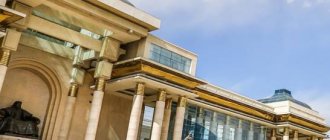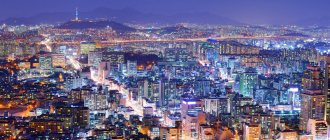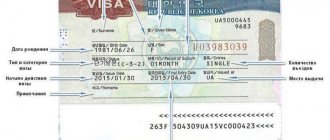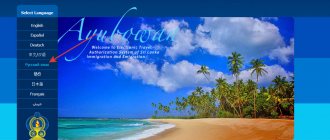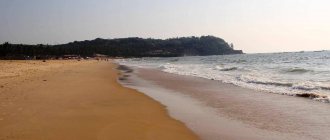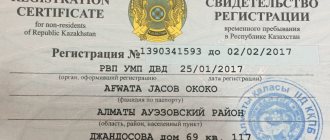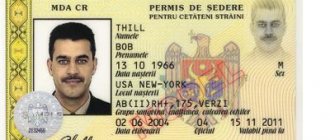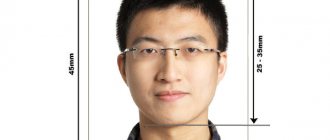Visa-free regime in South Korea
The Republic of Korea is divided into North and South, the regions have significant differences in politics and economics, which has limited their cooperation. According to current rules, visa-free entry only applies to the south of the peninsula.
This pleased Russians and residents of such regions as the Far East, Petropavlovsk-Kamchatsky, Khabarovsk, they are the closest, and Russians can travel by ferry from Vladivostok using the services of the Korean company DBS Ferry/Eastern Dream.
The capital Seoul is a business and cultural center that is visited annually by 300 thousand compatriots.
Many residents of the Russian Federation go to Seoul for treatment at Medical Centers, where patients are provided with professional care at a high level. Qualified specialists, innovative equipment, surgery, cosmetology - this is a small part of the entire service at an affordable price.
The tourist destination is one of the most developed in Korea; the attractiveness of the cities of Seoul, Busan, and the Tongyen resort is growing every day. The amazing history, traditions, and originality of the way of life of the Korean people are under the attention of tourists from many countries around the world. According to statistics, about 10 million foreigners a year come and enjoy the country of “Morning Freshness”.
A large number of ethnic Koreans have lived in Russia since the Soviet Union, and they often travel to the Korean Peninsula to visit relatives. In this case, a Korean visa is not required if the period does not exceed 60 days; it is enough to get a stamp at the border.
South Korean law allows any foreigner to be questioned for entry; if any discrepancies are detected, passport control officers will refuse entry in accordance with the agreement between the states. Thus, travelers must be prepared to provide proof of departure from the country at the appointed time. In practice, most often it is enough to present the purchased ticket to your country.
Sample visa stamp
Entry for children
Traveling with children to an Asian country is different from traveling on your own. To cross the border visa-free, you will need to follow simple rules:
- if parents are traveling with a minor child, then you need to take his birth certificate or a copy (preferably notarized);
- traveling with one parent obliges you to obtain permission/power of attorney to leave the Russian Federation from the other parent, this eliminates the risks of illegally taking children out of the country;
- if children are accompanied by a guardian, then a special power of attorney is required;
- For adult children, you need a Russian passport, an application form, a photo, medical insurance, and round-trip air tickets.
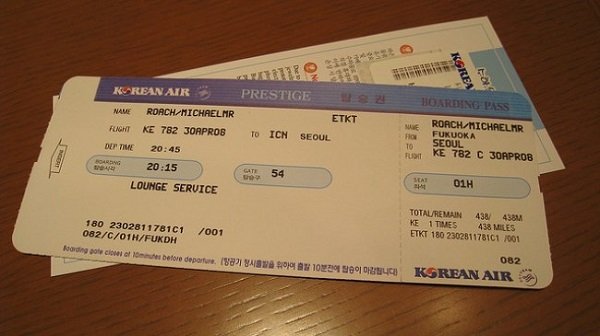
Korean Airlines flights
Food
Traditional food in South Korea is rice and noodles, just like in other Asian countries. Popular traditional dishes include kimchi pickled vegetables (most commonly Chinese cabbage) and ramen noodles.
You can often find shabushabu - this is a plate of raw meat and vegetables that you need to cook yourself. In other Asian countries it is found under the general name “hot pot”. Ideal for a large company.
Korean food is quite spicy and often unusual for our tastes.
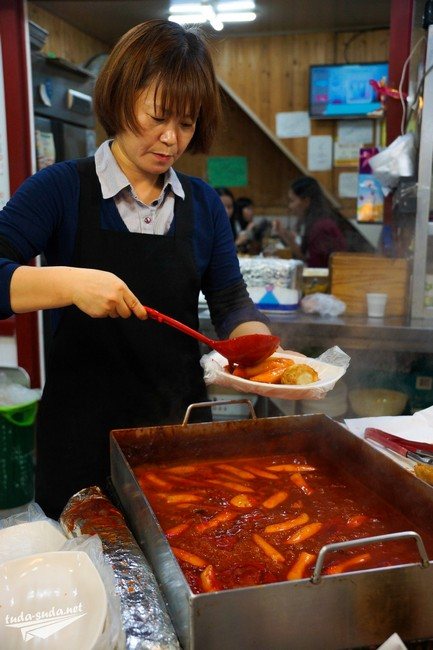
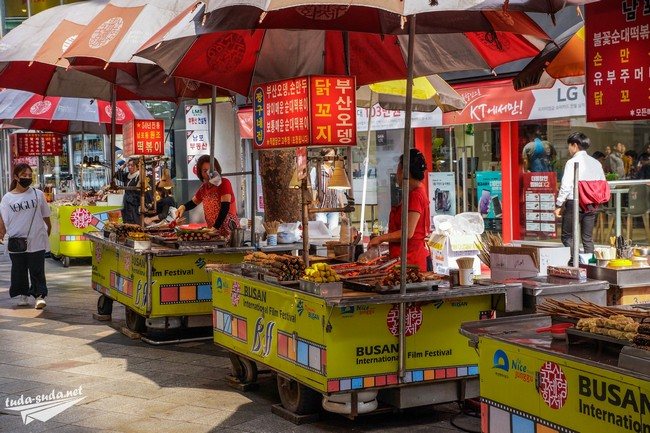
Holidays in South Korea: street food
Contrary to the prevailing stereotype, there are almost no places left in South Korea where they eat dogs. Restaurants serving this dish do not particularly advertise it and you have to look for them specifically and ask the locals.
The cheapest option is to eat quick noodles, but your stomach won't thank you. We chose this option in order to both save money and not pay too much: supermarkets sell special lunch boxes with rice and pieces of various meats. They cost 3500-4500 won. Tasty and inexpensive.
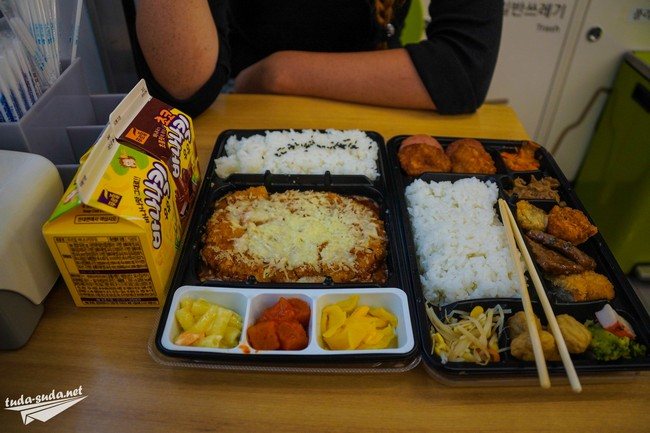
Lunch box from the supermarket
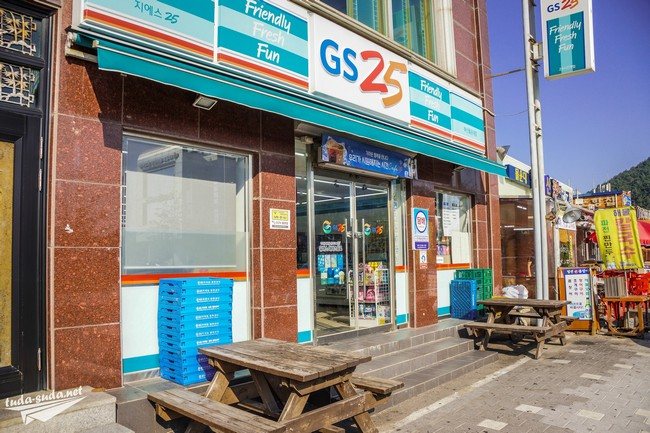
Supermarket GS25
Visa support for non-residents of the Russian Federation
Russia is one of the multinational countries in the world; other nationalities constantly live on its territory: Slavs, Caucasian and Asian representatives. Applying for a visa to South Korea from Russia is possible: for Belarusians, for Ukrainians, for Armenians. Persons of these nationalities can contact travel companies with a standard package of documents as for Russians. The presence of registration documents in the Russian Federation is mandatory. The cost of the visa fee is the same for all foreign visitors.
For citizens of Tajikistan, Uzbekistan, and Kyrgyzstan, registration is impossible; for this, you will need to visit your native state. This is due to the operation of a different visa regime.
Cost and processing time
These two questions are especially important for those who are seriously thinking about applying for a visa to South Korea and plan to do so in the near future.
The process of obtaining a visa to the Republic of Korea usually takes from 10 to 30 days.
The cost of obtaining a single-entry long-term visa is $90, and when applying for all types of multiple-entry visas, this amount will increase to $120.
More information about visa fees for a long-term visa can be found on the official website of the South Korean Embassy in Russia.
Types of visas in South Korea
The regularity and frequency of tourist trips is regulated by the agreement, which also defines other categories of long-term stay in South Korea.
Student Visa (D)
Russian and South Korean universities offer many student exchange programs, and young people are increasingly spending their student years abroad. It is also possible to apply independently, with residence in an actively developing country. There is a list of accredited Korean institutions that are happy to enroll international students in various departments. Language courses for adults, teenagers and children are also gaining great popularity - this is the study of the Korean language from entry-level to business. A long-term study visa is issued as D-2, short-term D-4.
Work visa (E, D, H)
Korea requires two categories of employees - working specialists, leading and chief specialists with in-demand knowledge and experience in the required field. South Korean companies make job offers in the manufacturing industry, trade, medicine, IT technology, and science. A work visa is issued through a request from the employer to the Migration Office, after which the Russian citizen collects the necessary documents. In the case of self-registration, applications are sent to the Embassy, this is the most labor-intensive process, but this does not stop specialists, because in the future there will be a decent salary. Investors open a business visa: D-8-1, D-8-2, D-8-3, D-8-4.
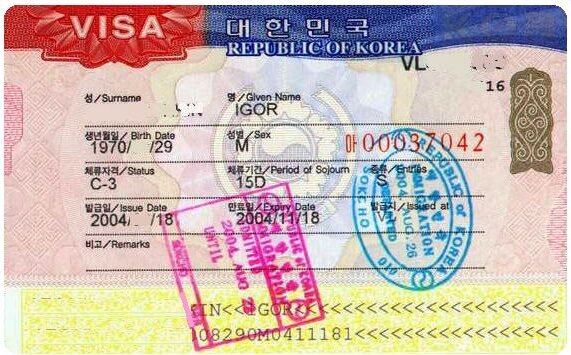
Long-term visa to South Korea
Ethnic Korean Visa (F-4, H-2)
F-4 and H-2 visas are open to Koreans who have residency in other countries. Demand in this direction is thriving; Korean companies help with employment of representatives of the ethnic group. Common jobs in factories, hotel services, and retail.
Family Visa (F-1)
According to Korean law, the visa regime for family reunification, visiting and living with relatives, accompanying students, temporary stay after divorce is issued under the F-1 type. Depending on the reason, the following options are distinguished: F-1-13, F-1-21...24, F-1-3, F-1-5, F-1-6, F-1-9, F-1- eleven.
For permanent residence (F-5)
Permanent residence is gaining momentum among the ethnic group, Koreans are going to work and looking to the state for future residence. If one of the following conditions is met, the likelihood of remaining for permanent residence increases:
- stay on the South Korean Peninsula for more than 5 years;
- investing more than $500 thousand with the creation of a company that will employ 5 residents of the Republic of Korea;
- if one of the spouses is a resident of the Russian Federation and has a document for permanent residence;
- workers with 4 years of experience in the manufacturing industry;
- scientific specialists working in the field of high technology.
Marriage (F-6)
Marriage relationships accepted in Russia and Korea give the right to stay in the country on an F-6 marriage visa. Depending on the conditions, they are divided into subtypes:
- F-6-1 – for spouses;
- F-6-2 – child guardianship;
- F-6-3 – for a spouse who has lost a spouse due to death or disappearance.
Visa (E-1)
Research work is accompanied by an E-1, E-3, E-5 visa, which can be used by scientists in various fields. It is important to justify the purpose of your trip.
Visa (G-1)
The remaining cases are classified as G-1, which includes: medical observation for accidents, treatment, participants in legal proceedings, extension of a short-term visa due to continued treatment.
According to this clause, it is possible to obtain humanitarian status or temporary asylum for Koreans from Russia. To receive it, you must confirm the reason for moving from the Russian Federation or the current situation in the family. Today, many people apply, but a minimal number of applicants receive approval.
Transit visa
A transfer in Seoul is made for long-distance flights; planes fly from Moscow with transit at Incheon Airport to New Zealand and Australia. If previously a transit visa was issued, now this obligation has been lifted. When your stay in Seoul extends for a day, when leaving the Terminal you must show an air ticket to the next country.
Procedure for entering South Korea during a pandemic
Foreigners who test positive for COVID-19 upon entering South Korea will have to pay for their own treatment in full if they violate the country's disease prevention guidelines.
From August 24, foreigners will be charged a reciprocal treatment fee in diplomatic relations with their countries (depending on their regulations for incoming Korean citizens).
South Korea provides free medical services to COVID-19 patients registered in the country, including foreigners.
Foreigners registered in the country's public health insurance system will be eligible for government support.
This measure came into force after cases of foreigners violating self-isolation rules or falsifying PCR test results (for COVID-19).
According to the South Korean Embassy in Uzbekistan, additional quarantine measures include:
tightening of standards for elevated temperature - permissible 37.3 degrees (previously 37.5);
the citizen and his accompanying persons are examined in the quarantine zone (if symptoms are present);
all foreign citizens are examined in a temporary stay facility (if there are no symptoms).
After examination, if the result of the PCR test is positive, the citizen is admitted to a clinic or treatment center.
If the result is negative, foreign citizens with a short-term stay are sent to a quarantine facility, and those with a long-term stay are sent to home quarantine, after confirming the place of self-isolation.
From the words of an eyewitness:
“We flew from Almaty on a regular Air Astana flight. Back in Almaty, they demanded that they install a quarantine application, checked whether there was a Covid test (no more than 48 hours and must be in English), and also forced them to sign a quarantine agreement
On the plane they gave us 4-5 forms, which we slowly filled out during the flight. Everything is standard there: first name, last name, birthday, flight, residential address, etc.
Upon arrival there is a lot of fuss. For example, if earlier we arrived at, say, 7 am and at 10 I was already in Seoul, this time we got home at 15:00.
So, upon arrival, you need to stand in a lot of queues. Everything there is done wisely, each check point is responsible for one thing. For example, at the first point, the temperature is checked and the results of the PCR test are collected. At another point, one of the completed forms is collected. Next, the application is checked and configured. Next, they call your contact person and check whether he knows you or not. At each point you are given a piece of paper, which means that the relevant check has been passed.
Just before passport control, there is another point where they check whether you have all the papers. Some people, seeing the crowd and chaos there, think that no one will notice, and bypass some point. As a result, at this step, they are sent back if they do not have some piece of paper, and they end up at the very end of the line. I've seen a couple of people like that.
Next, as before, passport control, luggage. But at the exit, special people are waiting for you again. staff. They put a mark on your shoulder. And they direct you in the right direction (depending on which city you are going to). If they greet you, great. Allowed. And they don’t make any problems for those who meet them. They only warn you that you must wear a mask.
If you are not greeted, there are two options. First, you need to wait for a special bus or they will provide you with a special taxi. Sometimes you have to wait a very long time for the bus to fill up. A special taxi to Seoul is not expensive, about 70,000 won (you can pay by card). But it’s convenient that it immediately takes you to a PCR test. He waits there for as long as needed, and the price does not increase. And takes you home. You can also go home straight away and take the test within 3 days. But then you will need to look for someone to take you. Regular buses and taxis are not allowed. Either relatives or on foot. Therefore, it’s better to do it right away. This is also special. the taxi helped us carry and load our bags, and they even gave us gifts. It’s a small thing, but it’s nice!”
When should you be tested for COVID-19?
- When diagnosed with unknown pneumonia or other suspected COVID-19
- After arriving from abroad, if within 14 days there is an elevated temperature (above 37.5℃) or respiratory symptoms (cough, difficulty breathing, etc.)
- If there was contact with a group infection of COVID-19 in the country and within 14 days there was an elevated temperature (above 37.5℃) or
- respiratory symptoms (cough, difficulty breathing, etc.)
- In the cases mentioned above, regardless of citizenship and residence status, as well as citizens, the check is done free of charge. If symptoms appear after consultation on 1339, contact the health post/pogonso or the nearest established screening center.
- If a foreigner without residence status (illegal immigrant) undergoes a check at a medical facility with symptoms of COVID-19, the information is not transmitted to the immigration office
- For questions about symptoms and information related to COVID-19, contact the information center 1339, for questions related to immigration and information about residence, contact the information center for foreigners 1345, where you can get detailed advice.
Passing the test in your homeland
From June 1, 2021, after leaving the country for re-entry, registered foreigners (except A1, A2, A3, and F4) must provide a health certificate upon re-entry indicating that they have been tested for COVID-19 within 48 hours before departure.
A health certificate must be issued by a valid medical professional. institution in the country of passage, a document issued in English is accepted.
The health certificate must indicate the presence and absence of symptoms, such as fever, cough, chills, headache, choking, muscle pain, pneumonia, and also indicate the date and time of the test (check passed 48 hours before departure is accepted) , be sure to indicate the person who conducted the inspection.
The health certificate does not have to indicate that the result of the test for COVID-19 is negative (Test Negative). But if there is a record that the test result is negative, the certificate will be accepted as valid.
- If the check is not passed or the certificate is not valid, if the certificate is falsified or corrected, if false documents are provided, boarding will be denied, entry into the country and other penalties will be imposed.
- However, if you provide a valid “certificate of exemption from isolation” issued by the Embassy of the Republic of Korea, then, as an exception, re-entry is allowed without providing a health certificate.
14-day quarantine
Foreigners entering Korea from April 1, 2021 may go to their own or separate facility for 14 days. Travel outside the designated areas is prohibited.
From the words of eyewitnesses:
Regarding quarantine, there are changes, for example, now in state quarantine one day of stay costs 150,000 won (previously it was 110,000). And also a quarantine of 15 days (previously they wrote 14 days and did not count the first, because of this there was confusion). The agreement also describes which housing is suitable for quarantine. It clearly states that you can go through quarantine together. And even if there are people in the apartment who didn’t fly in together, that’s also possible. It just needs to be possible to have separate routes inside the home. There must also be a toilet, shower, and kitchen.
Ways to obtain an entry visa
A short visit to Korea is regulated by a special stamp, which is placed at the international airport for 60 days. In other situations, it is necessary to submit the requested documentation to the Embassy or Consulate located in Moscow, St. Petersburg, Irkutsk, Vladivostok. To obtain a work visa, the employer contacts the Immigration Office in advance to obtain a certified number.
The E visa is obtained online by sending an application form, scanned passport data and a document confirming payment of the visa fee through a special portal. After approval, an electronic document will be sent; it must be printed and presented upon entry.
Types of visas
Despite the long period of visa-free travel, in some cases it may not be enough to achieve the goals of a foreign guest. Then obtaining a visa to Korea becomes the only step. What types of visas to Korea are there and how to get them? We'll tell you further.
Work visa to Korea for Russians
Many qualified personnel from Russia want to find employment in a country with such a developed, innovative economy as South Korea. In turn, Korean employers also seek to hire professionals from the Russian Federation due to the latter’s high level of qualifications. Applying for a work visa to Korea can be done in two ways:
- a work visa is issued on the basis of an official invitation from a Korean company interested in providing a workplace to an employee from the Russian Federation;
- It is possible to obtain a long-term visa to work in the Republic of Korea even if an official employment contract has not yet been concluded (that is, there is no formal basis after which the employer could issue an official invitation). To do this, you need to submit a request, motivated by these circumstances, to the Korean Embassy.
The following can count on receiving the original document – an invitation from the employer – as quickly as possible:
- highly qualified specialists in various fields;
- employees who have worked in a valuable market specialty for a long time (10 years or more), that is, they have gained extensive work experience and length of service;
- highly specialized specialists in in-demand industries;
- competent managers.
How to get a visa to Korea for students
We are talking about student visas, which may have the following categories:
- D-2 is a long-term visa (for a period of up to 2 years), which is issued to students who intend to study at a Korean high school, technical school, or university for an undergraduate or graduate degree;
- D-4 is a short-term visa, which is issued for a period of up to 90 days. Students who wish to visit South Korea for the purpose of a language internship have the right to receive it in a simplified manner.
Below is a list of official documents that must be supplemented with the standard set of documents for a visa:
- a confirmation certificate (issued by the educational institution) confirming that the visa applicant is enrolled in a university or language course;
- a document confirming the financial status of the visa applicant (the more money indicated in the certificate, the better);
- translated into Korean, notarized and apostilled copy of the diploma with an insert.
It should be remembered that cases of issuing student visas are considered at the Embassy or Consulates literally on an individual basis. And if there are signs of unreliability or distortion of the declared purposes of the trip, then the issuance of a student visa to the applicant will be denied.
How to get a visa to Korea for Koreans who do not have citizenship
This is an F-4 visa. This document format is intended for those Koreans who have permanent residence in other countries, but would like to be able to freely visit their native land. Such a visa can indeed be obtained in a simplified manner, however, the Korean government shows exceptional pragmatism in this matter.
Only compatriots who are valuable to the country can apply for this type of visa (if not by passport, then by mentality):
- highly qualified workforce;
- masters, graduate students and people with an academic degree;
- current or former employees of South Korean companies who have worked for them for over 5 years and have proven themselves to be effective personnel (a letter of guarantee will be required).
How to Apply for a Research Visa to Korea
The government of South Korea is aware of the importance of intensive innovative development of the country. Therefore, it is ready to stimulate this development in all available ways. In particular, the right to obtain visas under a simplified scheme is granted to persons conducting research activities or carrying out narrowly focused applied scientific research. To obtain such a visa (category E), you will simply need to justify the purpose of your trip (that is, the topic of your scientific research) at the Embassy or Consulate.
In addition, a research visa can be obtained entirely online using the form available on the Embassy website. In this case, you don’t have to part with your international passport at all: if the applicant’s application is satisfied, a document will be sent to the applicant’s email address, which will need to be printed and presented at passport control when entering the country!
Required documents for obtaining a visa in South Korea
According to the rules for visa-free entry for citizens of the Russian Federation, requirements are established for the presence of the following documents, which must be shown to representatives when checking at the South Korean airport:
- Original passport with blank pages and valid for 180 days.
- Migration card, which is distributed by flight attendants, where they indicate the purpose of the trip, the address of the stop, the timing, and then put a signature.
- The customs declaration, if there are no items for its preparation, is submitted as zero.
- For return air tickets or their reservation, it is important that the departure date, flight number, and airline name are clearly visible on the ticket.
- Confirmation of the availability of money - bank documentation.
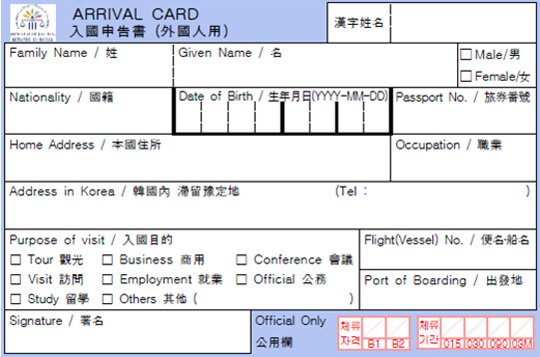
Migration card form
Before applying to the Immigration Office for a long-term visa, first study the list of documents. Each visa has its own application rules, but the standard package includes:
- Visa application form – personal information in English and Korean with the signature of the applicant. A sample document can be downloaded from the official portal of the Embassy.
- A photograph of size 35*45 mm, taken no earlier than six months, can be taken several at once.
- A passport with blank pages and valid for at least six months.
- Receipt of payment of the visa fee.
- Medical insurance for trips abroad.
- Documentation for children.
- Pensioners will need a pension certificate.
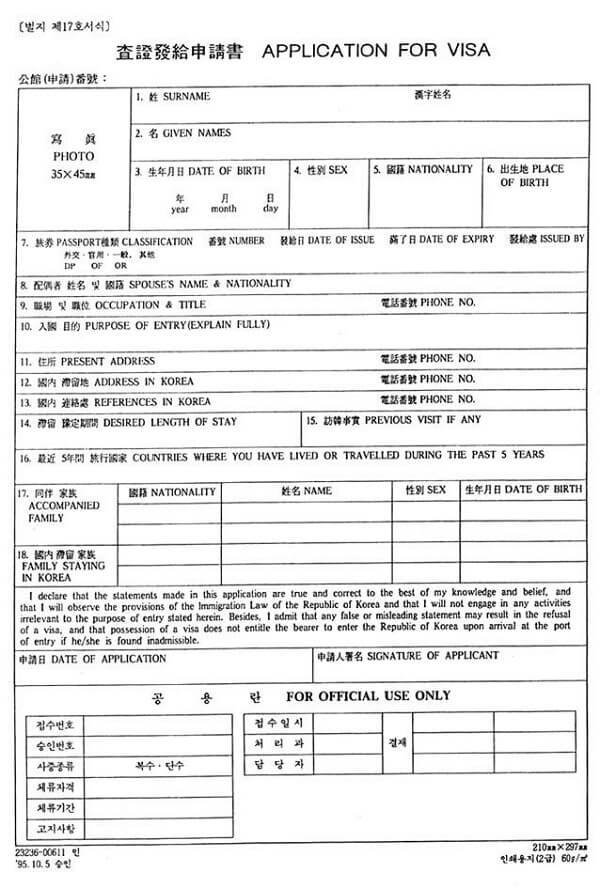
Sample Application Form for Visa
Additional documents for individual visas
In addition to the main documentation, other documents are also requested, in accordance with established rules and international agreements. The regulations look like this:
| Tourist | • invitation from the hosts; • travel company voucher; • letter from the Guarantor. |
| Guestbook | • invitation from the hosts; • letter of guarantee; • certificate from the bank about current accounts and availability of funds; • a document from the Russian employer indicating the amount of income; • 2 personal income taxes (on request). |
| Business visa | • invitation from a legal entity; • guarantee obligation; • confirmation of accounts and amounts of money; • a document from the place of work indicating income; • certificate 2 personal income tax. |
| For medicinal purposes | • letter from the Medical Center; • documentation with diagnosis and recommendations from a doctor; • necessary documentation from work in the Russian Federation; • confirmation from a bank account; • if there is a sponsor, confirmation of the amount in his accounts. |
| Creative sphere, advertising | • invitation from a South Korean company; • registration documents of a legal entity. • a copy of the signed contract; document from the place of work in the Russian Federation, indicating income; • guarantee obligation. |
| Working | • certified number from the employer; • medical confirmation of the absence of tuberculosis, confirmed in a special hospital. Cost of admission is $75. Payment is made in cash in rubles. |
| Student | • invitation from an educational institution; • copies of registration documents; • bank certificate for the amount of tuition and living expenses; • documentation of the applicant's birth and education; • sponsorship obligation, confirmation of work in the Russian Federation of the sponsor, 2 personal income tax of the sponsor (with his participation); • a copy of the contract for the student exchange applicant; • paid voucher for language courses; • medical certificate with a negative indicator for tuberculosis. |
| For members of an ethnic group | • document confirming residence of the Russian Federation; • birth information with a record of the ancestor’s data from the applicant or from second and third generation relatives; • confirmation of marriage if there is a change of surname; • medical certificate with a negative indicator for tuberculosis. |
| For relatives of a native Korean | • marriage documentation; • visa copies of spouses. |
Cost of visa in 2021
This year, the cost of obtaining a visa has not changed; tariffs apply for each type separately. Payments are made in cash in USD in the following categories:
- tourist type C – $50, this includes tourists, guests of visiting relatives, patients of Korean medical centers; workers of creative professions, media for short-term projects;
- working – from $80-120 (depending on the period for which the employee is invited); specialists of various levels with a term of employment from 1 to 5 years with the obligatory signing of a bilateral contract in English and Korean;
- student - $80, for students in language schools, higher institutions, colleges;
- for people from this ethnic group – $120, paid by Koreans with Russian residency up to the third generation; for employment; for wives, husbands, minors on a multiple-entry guest visa.
Visa validity period
A trip to the South Korean Peninsula of any nature has restrictions on the length of stay; information is specified in the Embassy regulations on the entry of foreign citizens. Violations are punishable by fines and blacklisting, which will have many consequences for international flights.
In 2021, the following visa deadlines apply and should be adhered to:
- tourist – for three months;
- working – from three months or longer (according to the work contract);
- for people from an ethnic group (up to the third generation) – five years (without leaving the country for up to two years);
- for spouses of an ethnic group and children - for one year (period of continuous stay up to two months).
The maximum period for visa-free entry is allowed for 3 months per year. Russians can extend the period of a stamp or visa seal without leaving the Korean Peninsula. To do this, you must contact the Immigration Department.
Flights
Where to look for cheap tickets? Use the search engines Aviasales and Skyscanner - they compare prices of all airlines. Learn the secrets of finding cheap air tickets.
Prices from Moscow and St. Petersburg in 2021:
- to Seoul - with transfers from 23,000 rubles, direct from Aeroflot - from 37,000.
- in Jeju - from 33,000.
- to Busan - from 37,000 rubles with transfers (for example, in Beijing).
The cheapest way to fly to South Korea is from the Far East:
- from Vladivostok - from 11000.
- from Novosibirsk and Krasnoyarsk - from 24,000.
How to save money? Monitor ticket prices, catch promotions and buy in advance. You can fly to Korea cheaply if you are already traveling: for example, tickets from Japan cost only 5,000 rubles! It is a little more expensive to fly from China and some Southeast Asian countries - the Philippines, Vietnam, Malaysia - about 10-12 thousand rubles.
The experience of Marco Polo. We flew from Bali on AirAsia flights, and tickets with luggage cost 14,000 rubles per person. We flew from Seoul to Novosibirsk on S7 for 18,000 rubles per person.
Current prices for flights to Korea
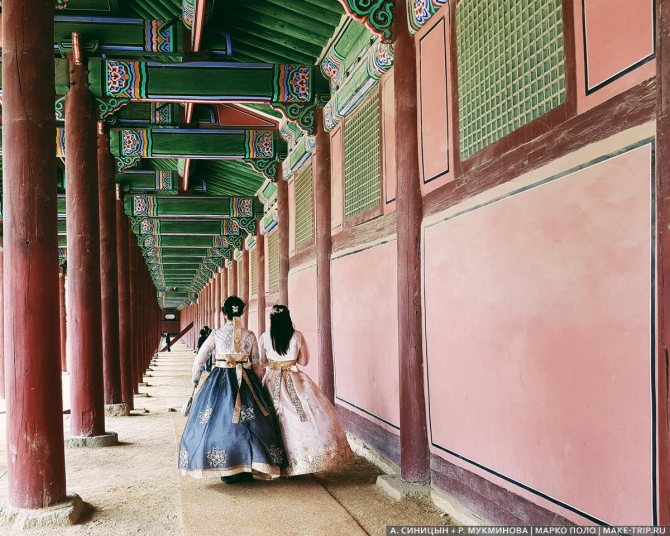
Koreans love to wear old traditional clothes when visiting palaces and other attractions.
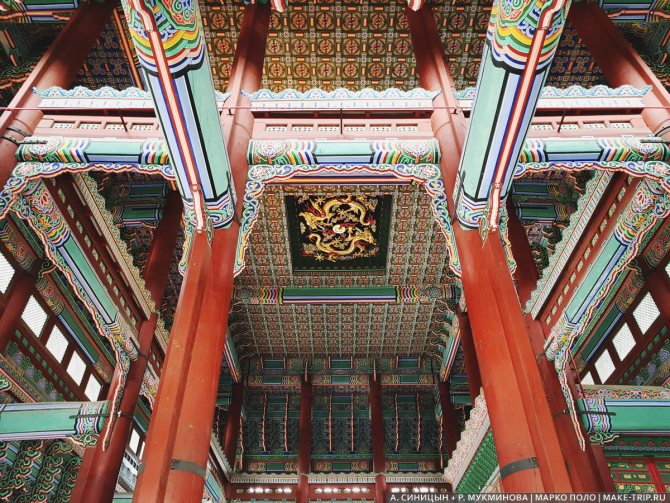
Gyeongbokgung Royal Palace in Seoul.
Visa refusal
Obtaining a stamp in Korea has made it easier for Russians to enter, and in most cases, passport control is successful. For a longer stay, more procedures are required, starting with collecting documentation, visiting the Embassy and waiting for a passport.
According to statistics, some persons are denied entry for the following reasons:
- if a citizen of the Russian Federation has not provided any documents according to the main and additional list;
- providing false data or filling out the form incorrectly;
- the period of the request does not correspond to the period of invitation from those meeting: medical centers, relatives, companies and educational institutions;
- previous violations not only in Korea but also in other countries;
- suspicious behavior of the applicant.
Hotel prices in Seoul - 2021
During an independent trip to South Korea, a lot of money will be spent on hotels or renting an apartment - be mentally prepared.
Where to live. Stay closer to the center near a metro station - this way you will save on transport. It makes no sense to live on the outskirts if you are only here for a few days - you will spend more time and money on the road. We chose Anguk station - it has a strategically convenient location!
Where is it profitable to book accommodation?
- Roomguru.ru - compares hotel prices, looks for discounts.
- Booking is the most popular hotel booking site in the world.
- Airbnb - a huge selection of rooms, apartments, houses from owners. Cozy, beautiful and economical for a large company!
The experience of Marco Polo. We stayed in the wonderful City Park Hotel for $36 per night in the Jongno-gu area near Anguk metro station, between two royal palaces - a very convenient location. There are many cafes in the alley. Book in advance - with a discount it costs $28 per night. The hotel is comfortable, there are various nice little things: bathrobes, hairdryer, toiletries, free noodles once a day and coffee.
If you want to feel like home, rent an apartment on Airbnb. In the summer of 2021, there are many options in the center of Seoul for $40-70 per night for two. Private rooms cost $30-50 for two.
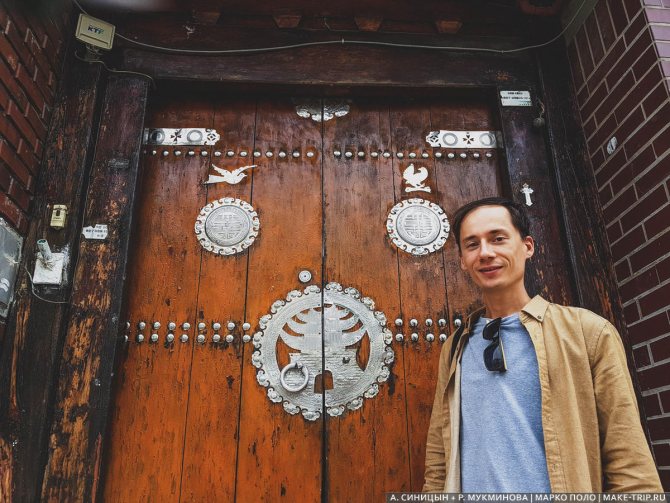
Koreans love and appreciate the beauty around them - in Seoul you will see many beautiful houses, especially in the village of Bukchon.
Here are the prices for hotels and hostels in South Korea in 2021:
| Housing type | Price for two per night | Example |
| The hostel is not in the center | from 8$/person | Birdsnest Hostel Hongdae |
| Hostel in the center | from 9$/person | Kimchee Downtown Guesthouse |
| Budget hotel not in the center | from 24$ | Korstay Hotel |
| Budget hotel in the center (Jongno-gu) | from 27$ | Jongro Alice Residence |
| Hotel 3* | from 35$ | Myeongdong Merlin Hotel |
| Hotel 5* | from 115$ | Novotel Ambassador Seoul Yongsan |
The highest prices in South Korea for hotels are in July-August and on New Year's Eve - good and inexpensive accommodation is quickly sold out. Book in advance!
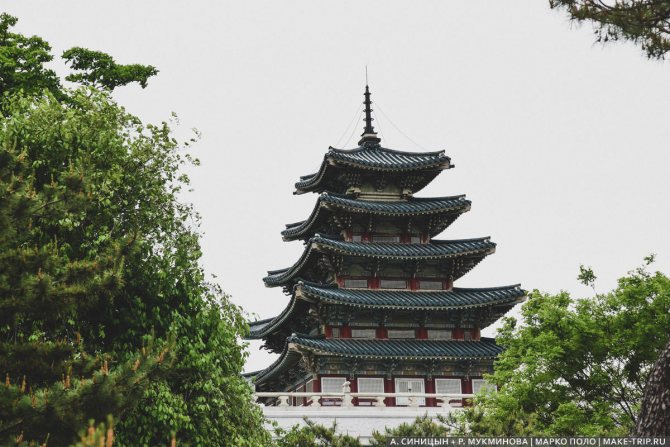
National Ethnographic Museum of Korea.
If you want to get a special experience on vacation in South Korea, choose unique accommodation :
- traditional yogvan , where you sleep on the floor on a mat.
- Hanok is a traditional house. Cost from $170 to $300 per day. Located in the traditional village of Bukchon next to the royal palace. We found an inexpensive hanok on Airbnb with good reviews.
- Chimchilban - sauna. Entrance for 12 hours: at night - 15k ₩, during the day - 12k ₩. There you can not only steam and wash, but also sleep. Instead of beds there are mats. There is a safe. The most popular sauna in the center is Dragon Hill Spa, but there are many others that are cheaper.
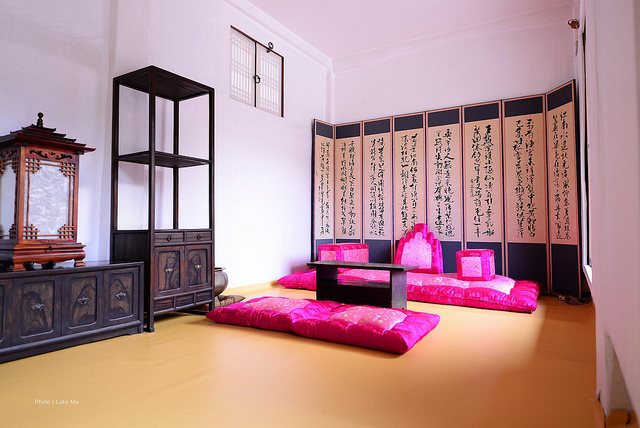
Hanok (Photo: Luke,Ma / flickr.com)
Consulates of South Korea in Russia
When the documents are collected, the next step is to visit the Immigration Department. Regardless of their place of residence, residents of the Russian Federation can submit documents to any Embassy/Consulate in the Russian Federation.
Today the Embassy serves the majority of applicants in the Moscow region at the address: Khamovniki district, Plyushchikha Street, 56, block 1. Calls are accepted at the contact number. Working hours on weekdays are from 9:00 – 18:00, closed on weekends.
Another large center for receiving applications is located in St. Petersburg, the Consulate is located on Nekrasova Street, 32, letter “A”. You can call the contact number 7 (812) 448-19-09. The work schedule is the same as in Moscow from 9:00 to 18:00, closed on weekends.
For residents of Vladivostok, a Consulate is open on Pologaya Street, 19. For any questions, you can dial
+7. Working hours on weekdays from 9:00 – 18:00.
In the Irkutsk region, it is possible to apply for a visa to South Korea in the city of Irkutsk at the address: Gagarin Boulevard, 44, consultation is available by calling the city number +7 (395) 225–03–01. Open on weekdays from 9:00 – 18:00.
The necessary documentation is submitted in person, after approval, the passport is collected independently or the address of actual delivery to any region of the country is indicated.
How to get to South Korea cheaply?
The most convenient way to get into the country is to fly, as most tourists do.
There are direct flights from Russia to South Korea from Moscow, St. Petersburg, Khabarovsk and Vladivostok.
There are direct flights to Daegu from Khabarovsk and Vladivostok by T'Way Air and Hanh Air at a price of approximately 13-15 thousand rubles in both directions.
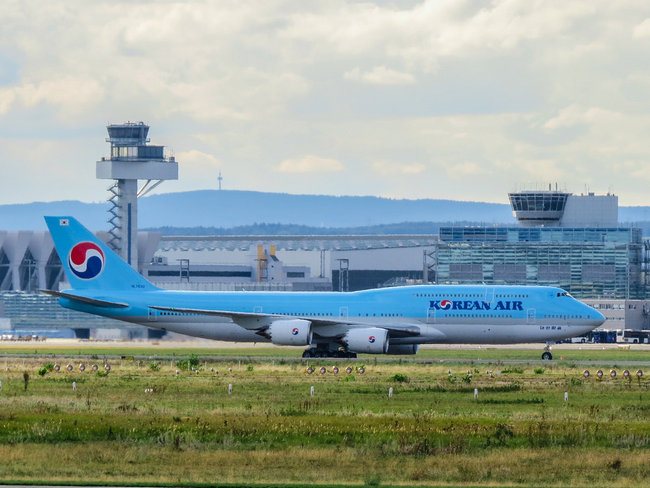
There are direct flights to Seoul from Vladivostok (S7, Aeroflot, Jeju Air, Korean Air), from Moscow (Aeroflot, Korean Air), from St. Petersburg (Aeroflot), from Khabarovsk (S7, Aeroflot, Asiana Airlines).
There are direct flights to Busan from Vladivostok (Aeroflot).
The cheapest way to get to South Korea is to catch a sale on the Korean low-cost airline Jeju Air from Vladivostok to Seoul. Once they were selling tickets for 3,000 rubles one way and 6,000 round-trip. Unfortunately, sales don't happen that often.
Airfare from Moscow
